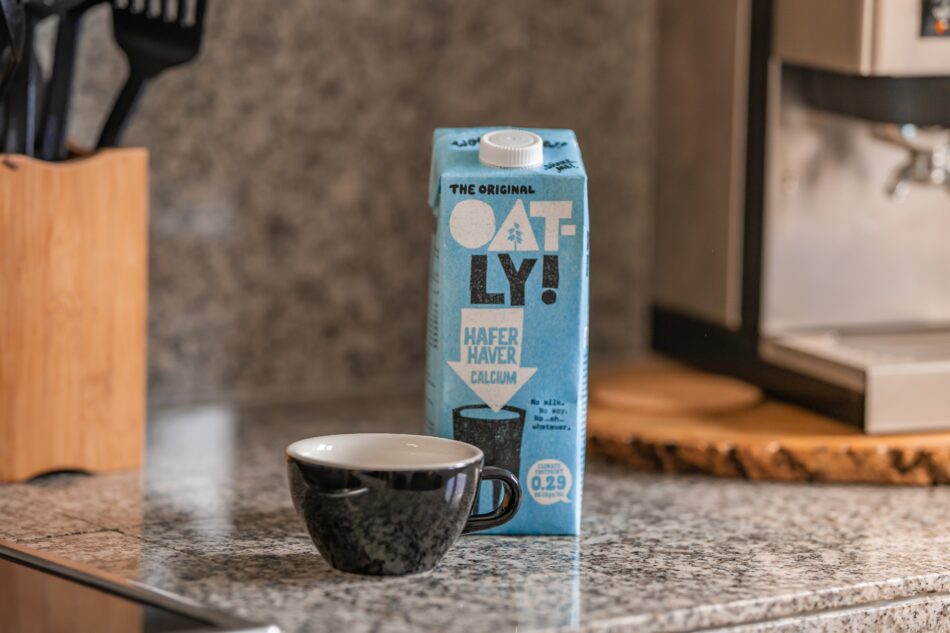Prepare Your Business for New Food Waste Legislation in the UK
From 31 March 2025, most UK businesses must arrange separate food waste collections. Learn and prepare for the new food waste legislation in the UK.

The UK produces 82 million tonnes of packaging waste each year – and waste cartons contribute significantly to these figures. Commonly used for milk and other drinks, once you’re done with a carton it’s important you know how to dispose of it correctly to help protect the environment.
In both the home and workplace, carton waste is regularly produced in our kitchens. However, methods of disposal can differ. From drinks carton recycling to disposing of soup and other types of these containers, find out everything you need to know about carton recycling below.
Used cartons are a form of packaging waste. They can easily be recycled because they’re made from a combination of paper, plastic, and aluminium – all of which are recyclable materials. Depending on exactly what they’re made from, some cartons may simply class as cardboard waste.
The invention of cartons is often credited to Robert Gair, who was previously known for creating paper bags and other forms of paper packaging. He created the first cartons in 1839 when searching for semi-flexible packaging that offered a little more support and structure than traditional bags.
Cartons are made from various recyclable materials – with paper (paperboard) being used in the most significant volumes. However, they also contain polyethene (a type of plastic) and aluminium foil. Plastic can be used for the lid in some cases, while aluminium foil is used to protect the contents and give them a longer shelf-life.
The process of creating cartons varies depending on their intended use. For example, drinks cartons often require extra insulation to ensure the product is safe for consumption. The general process to make cartons is:
Many different businesses, such as supermarkets and restaurants, produce large volumes of carton waste as part of their daily operations. You should ensure it’s all disposed of correctly through carton recycling, diverting it away from landfill. To dispose of cartons, you should:
Cartons will typically take around five years to decompose if sent to landfill sites by being disposed of alongside your general waste. While this may not seem that long (especially compared to plastic products), they can still do considerable damage to the environment during this time. Thankfully, the recycling process for cartons is relatively straightforward:
Since the materials used to create cartons can be easily recycled, they’re widely considered a perfectly acceptable (and sustainable) form of packaging – and fairly eco-friendly themselves. However, there are a few alternatives you may want to consider using instead, such as cartons made from already-recycled materials such as plastic. Glass jars or containers are also easier to recycle and suitable for re-use.
Thankfully, you don’t need to throw away cartons directly after use – as they’re a versatile product that can be put to use in other ways throughout your home or business. For example, cartons can be used as planters for those putting their gardening skills to the test.
Alternatively, you can cut them down to different sizes and use them for storage, making desk organisation a breeze. Finally, you can use them in various craft projects.
At Business Waste, we believe recycling should be affordable, as it’s so important. We provide cost-effective waste management services across the board. For example, we’ll help you get started on the right foot by giving you free access to bins and containers – such as recycling balers – for you to store your carton waste in before disposal.
There are approximately two trillion drinks cartons made every year.
A few facts about cartons are that:
Thankfully, cartons can be recycled alongside the rest of your general recycling at home, which is collected by your local council. This is because they can easily be sorted at recycling facilities. Additionally, many supermarkets have designated waste collection points where you can leave all manner of recyclables – including cartons – free of charge.
Find out more about other rubbish streams.
Get a fast FREE quote for your carton recycling
From 31 March 2025, most UK businesses must arrange separate food waste collections. Learn and prepare for the new food waste legislation in the UK.
The study participants included business owners and company employees, revealing unexpected findings about corporate environmental practices.